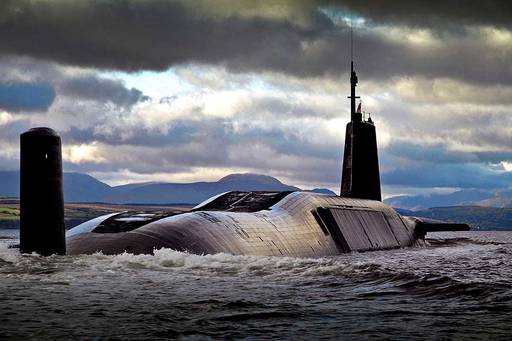UK Nuclear Deterrence Network

Evidence of the renewed salience of nuclear weapons is growing: the dawn of nuclear multipolarity, deepening integration of nuclear and non-nuclear capabilities, and evolving nuclear doctrines and capabilities across nuclear-weapons states. This resurgence of nuclear challenges on the global stage, coupled with developments in transatlantic and intra-European relations, requires a fresh assessment of the current state and future of nuclear deterrence for the UK and its allies.
Mission Statement
The UK Nuclear Deterrence Network, a consortium comprising King’s College London, the RUSI and the University of Leicester, seeks to understand the practice and theory of deterrence, assess the value of deterrence against a changing international landscape, generate evidence-based research and recommendations, and develop a UK-based community of practice engaged with the role and future of deterrence for the UK and its allies.
The Network will offer innovative approaches to current nuclear deterrence challenges through two main pathways: providing intellectual contributions through research and publications and building a stronger knowledge base for early- and mid-career experts through the Deterrence Futures Fellowship.
Project Summary
This project aims to analyse and expand the landscape of ideas and thinking surrounding UK nuclear deterrence by engaging a range of perspectives and approaches to the current and future role of deterrence for the UK and further afield.
This will be achieved through a combination of research and knowledge generation which will provide intellectual contributions to the understanding of current nuclear deterrence challenges. The project will also include an international dimension to connect British and NATO allied communities of practice.<
The project seeks to generate fresh thinking across three areas concerning the changing circumstances facing the British nuclear deterrent and their consequences for UK nuclear policy:
- Great power strategic competition
- Navigating a landscape with multiple nuclear competitors
- Updating strategic concepts and practices of deterrence
By inviting a diverse range of candidates to participate in the Deterrence Futures Fellowship, the UK Nuclear Deterrence Network also hopes to establish a more modern and holistic approach to deterrence while advancing innovation and improvements in UK policymaking.
Project Sponsor
The project is supported by the UK Ministry of Defence through its Nuclear Deterrence Fund.
2025–2027 Cohort
The 2025-27 Deterrence Futures Fellowship cohort brings together perspectives from academia, the private sector, non-governmental organisations, governments and the British military across six nationalities and with a 1:1 gender parity. Fellows hail from eight cities across the UK, as well as France, Germany, Poland, and Sweden.
Below are some of the Fellows who form part of this cohort:
Albin Aronsson
Deterrence Futures Fellow

Dr Rhys Crilley
Deterrence Futures Fellow

Major Callum Gaskell
Deterrence Futures Fellow

Matthew Giddings
Deterrence Futures Fellow

Dr Euan Gray
Deterrence Futures Fellow

Jamie Kwong
Deterrence Futures Fellow

Tilman Leicht
Deterrence Futures Fellow

Ewart Middleton, Senior Engineering Manager, Defence Nuclear Organisation, Ministry of Defence
Zeenat Sabur
Deterrence Futures Fellow

About the Deterrence Futures Fellowship
This unpaid, non-residential professional development programme is for early- and mid-career professionals across academia, think tanks, NGOs, governments, the armed forces, and the private sector with 3-7 years of relevant professional or academic experience keen to grapple with the evolving concept and practice of deterrence and its role in UK and international security.
Fellows engage with a range of perspectives and approaches to the current and future role of deterrence for the UK and further afield across the following thematic areas:
- Foundations of UK and Allied nuclear deterrence
- Nuclear, conventional, and integrated deterrence and emerging and disruptive technologies
- The politics of nuclear deterrence and its interaction with disarmament efforts and platforms
- Escalation management and strategic communications
- Evolving capabilities of Russia and China and the changing nuclear order
Fellows also connect with senior officials and top international experts, participate in scenario-based discussions and exercises, and receive professional development support though in-person meetings, site visits, and supplemental online programming. By the end of the programme, Fellows will develop policy briefs, with the option to write short-form policy articles, related to the UK Nuclear Deterrence Network’s areas of focus.
The UK Nuclear Deterrence Network actively encourages participation from individuals of all backgrounds—including people of colour, women, LGBTQIA+ individuals, and people with disabilities—and is committed to creating an inclusive, respectful environment where diverse perspectives are valued and welcomed. Fellows represent a broad range of viewpoints and backgrounds and must therefore embrace an open mindset and voice disagreements respectfully.
Meet the Team
The UK Nuclear Deterrence Network is a led and managed by a consortium of British institutions at the leading edge of nuclear policy studies in the UK: The University of Leicester, King’s College London, and the Royal United Services Institute
Consortium Leadership
Mar Casas Cachinero
Programme Manager
Proliferation and Nuclear Policy

Jack Crawford
Research Fellow
Proliferation and Nuclear Policy
Arun Dawson
PhD candidate at the Freeman Air and Space Institute, King's College London

Darya Dolzikova
Senior Research Fellow
Proliferation and Nuclear Policy

Professor Andrew Futter
UK PONI Advisory Board Member

Nicola Leveringhaus
Reader in East Asian Security and International Relations, King’s College London



